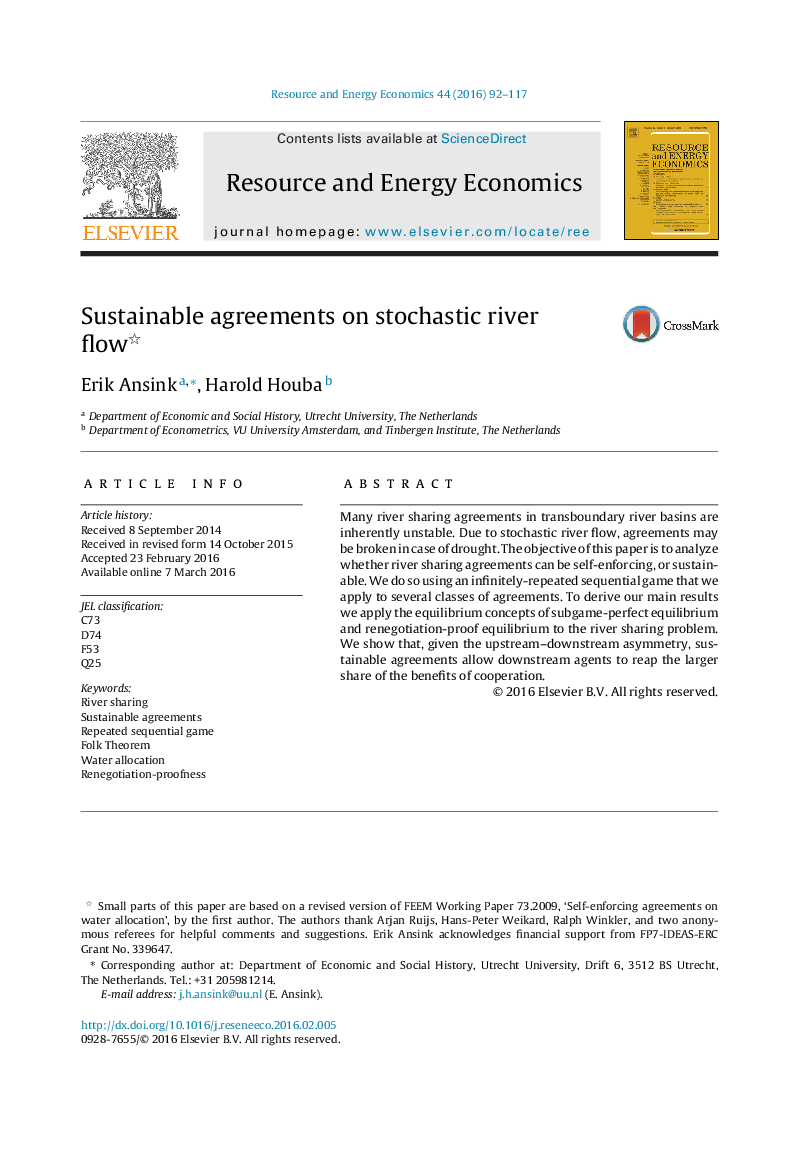| Article ID | Journal | Published Year | Pages | File Type |
|---|---|---|---|---|
| 7387472 | Resource and Energy Economics | 2016 | 26 Pages |
Abstract
Many river sharing agreements in transboundary river basins are inherently unstable. Due to stochastic river flow, agreements may be broken in case of drought. The objective of this paper is to analyze whether river sharing agreements can be self-enforcing, or sustainable. We do so using an infinitely-repeated sequential game that we apply to several classes of agreements. To derive our main results we apply the equilibrium concepts of subgame-perfect equilibrium and renegotiation-proof equilibrium to the river sharing problem. We show that, given the upstream-downstream asymmetry, sustainable agreements allow downstream agents to reap the larger share of the benefits of cooperation.
Related Topics
Physical Sciences and Engineering
Energy
Energy (General)
Authors
Erik Ansink, Harold Houba,
